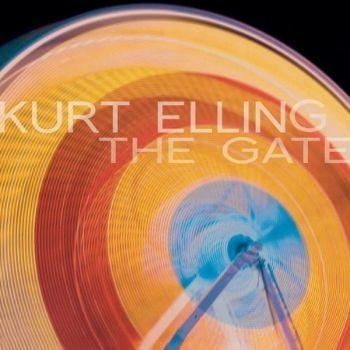Kurt Elling – The Gate
aaamusic | On 06, Mar 2011
Smooth to the point of soporiphic, Kurt Elling’s latest release ‘The Gate’ is a distilled essence of “jazz vocal album”, from start to finish a light, melodic caress of emotion and soothing relaxation.
Opener ‘Matte Kudasai’ is a slow, mournful musing upon solitude, careful basslines tiptoeing around evocative piano and Elling’s flawlessly tender voice. Lyrics unfold, poetically infusing blues tropes of long nights alone with a surreal emptiness akin to Haruki Murakami’s prose. The music flows around the tale, with weeping steel guitar and trickling piano melodies, plucked harmonics and high-low pitch contrast adding sparkle without disturbance. ‘Golden Lady’ returns to the luxury, sprinkling slight funk and scatting over silken lounge. Arrhythmic flurries of words are coaxed into place alongside fluent phrases, matched by simple refrains.
‘Stepping Out’ picks up the pace with bouncing hi-hat and agile double bass, alongside flourishing piano. Elling’s voice develops a sunny luminescence here, rising and falling in intonation with expressive, smoky charm. The piano solo is inventive without being obtrusive, loping alongside the rhythm section with spiralling cascades. ‘Norwegian Wood’ also includes a fun crablike scuttle in its unusual melodies and slightly arrhythmic percussion. Even Elling’s vocals have a new dimension of expression to them, and despite the oddly awkward, childish poetry in the lyrics, the music itself has so many more facets that swell in inventive melody and exploration, breaking away from easy listening jazz to revel in pretty much everything the musicians think of, from Stewart Copeland to Hendrix. ‘Samurai Cowboy’ is another moment of inspiration, a real surprise gem of a track. Succinct and evocative with vocal percussion bringing both Eastern melody and spaghetti Western atmosphere to a subtly energetic three minutes, and Ellington’s voice showing real fluency and talented flexibility, not just leaning on his smooth yet unremarkable tones but showing real expressive capability, playful yet assured and full of honeyed grace.
In contrast, ‘Come Running To Me’ slips whisper-soft into the ear, a piano-driven piece of musical eloquence with not a corner in sight. Slow and easy is the order of the day. Elling’s voice once again conjures intimacy with the first smooth croon, aided by a salsa-tinted jazz rhythm and his emotive piano. Every note is a perfect, polished creation, every last triangle ping and bongo tap placed to a preternatural degree of accuracy, yet the refrain can’t help but wear. The verses are fluid, but the motifs are slightly too repetitive to hold the listener. And herein lies the problem: for every inhumanly perfect aspect, it loses any real hook. The production is incredible, yes, and allows each instrument to breathe yet interact, but it all feels, well, synthetic. For every fully-formed and gently creative ‘Norwegian Wood’, great moment like ‘Samurai Cowboy’, or borderline magical twilight portrait a la ‘Blue In Green’ or ‘Matte Kudasai’, we have rambling self-indulgences such as ‘After The Love Is Gone’, which for all its charm just cannot hold interest for the layman. It conjures cinematic beauty in its hip cool, but then falls in on its lack of immediacy.
I wish I could shower praise upon this luxurious album. ‘The Gate’ is wonderfully rich in tone, but although it initially promises the jazz equivalent of five-star chocolate ganache, the lack of reality in its repetitive nature and the fact that most of its tracks are simply too easy-listening to really blossom into anything eye-opening, we are instead given Cadbury’s chocolate mousse. Enjoyable in its own right, but disappointing and pedestrain in comparison to what could be.
Author: Katie H-Halinski


